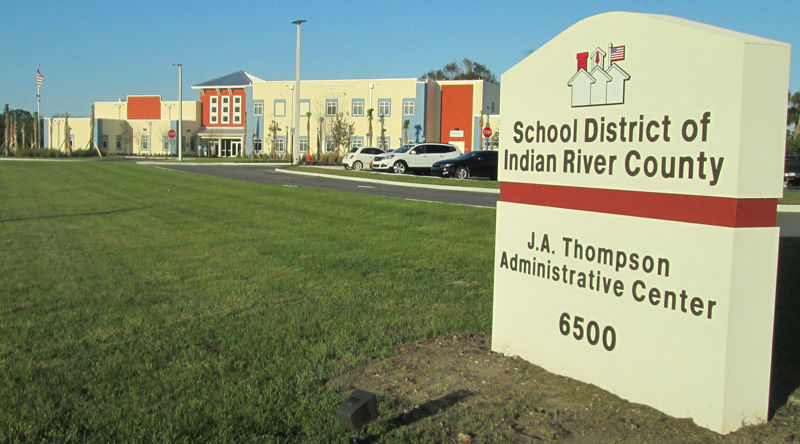INDIAN RIVER COUNTY — For the last three years, the Indian River County School District has charged a monthly premium for employee health insurance that doesn’t cover the cost of claims, putting the School District – which self-insures – $7 million in the hole.
Assistant Superintendent Carter Morrison, the district’s chief financial officer, told school board members that the health insurance premiums need to go up 31 percent – which would bring in nearly $6 million more each year – to achieve equilibrium – but that would not remedy the $7 million deficit.
The district does not have enough cash to pay the whole $7 million in one year without eating into its state-mandated minimum 3-percent cash reserve, but Morrison said he has permission from the state to catch up on the insurance deficit over three years.
The school district has self-insured for many years instead of offering its 2,000 employees health insurance through a private company. School board member Shawn Frost contends this is a mistake.
“The district is managing an entire business we are unequipped to [manage],” Frost said. “We don’t have people who can predict risks. The risk-management department hired an expert actuary whose job it was to determine the premium price [that should be paid by employees]. Staff is complicit in not challenging it, and so is the board for not challenging staff.”
The district has hired a new actuary, and Frost has pushed to sue the former actuary, but he said that idea “got no traction with my fellow board members or staff.”
Any decision the board makes about fixing the health insurance premium problem in upcoming budget talks will mean nothing unless unions representing district employees agree to it. “It may all be for naught, because everything depends on the unions,” Frost said.
The Communications Workers of America represents teaching assistants, clerical works, custodians, maintenance staff, cafeteria workers and bus drivers. The Indian River County Education Association represents teachers. Both unions negotiate health benefits yearly, and the CWA also is in the midst of a contentious overall contract negotiation. Frost said those negotiations have “been in limbo” for more than a year.
When he became a school board member in 2015, Frost said, he pointed out the financial danger of high health care expenses to Superintendent Mark Rendell.
“He told me we’ll have fewer claims, the health clinic savings will kick in and the Communications Workers of America will settle,” Frost said. “None of that happened.”
The district opened its own health clinic about a year and a half ago, contending that treating employees in-house would save money. The clinic costs about $1.4 million a year to operate, Frost said, and is supposedly saving the district over $500,000 a year, according to Assistant Superintendent William Fritz.
Frost said Fritz has not explained how he arrived at the figure.
The school district will publish a tentative budget on July 23. A public hearing on the budget will be held July 26, according to Morrison. A final budget hearing will be held Sept. 8 and the budget is due to the state on Sept. 11.

